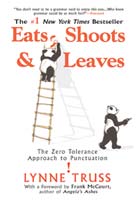Saturday, 7 October 2006
Writer's block
There's a lot of truth in that! There's also lots of advice out there on how to beat The Block. Here's my tip:
Imagine, instead of a writer, you're an athlete...a long distance runner perhaps. You've strained a calf muscle, you want to run but you're incapable, or at least when you try to take a few paces, it hurts like hell. What do you do? Rest it a while? Give up running?
The professional athlete knows the best way to heal is to keep it active, get a good physio on the job and slowly he'll achieve peak fitness once more.
That's what writers should do. Don't stare at a blank screen/page and groan in despair, massage that brain! Write anything...an email, update your blog (cough!) WRITE ABOUT YOUR BLOCK IF YOU WANT, BUT WRITE, DAMN IT!
Friday, 6 October 2006
News flash - Pope sees sense.

I had my first 2 children baptised, not because I was religious, but because my family expected it of me.
By the time my twins came along, I'd decided we could have the party without the religious blessing, so they remained unbaptised. Something I have no regrets over. They have grown to become beautiful, well-mannered, honest, hard-working adults of whom I'm extremely proud. If God had no place for them in Heaven under his old rules, it would be His loss. I'm glad He's thought it through! I like the idea of a reasonable God...not sure I believe he exists but...
Note: What's with the funereal theme today?
Hearse-jacking - a new craze?
Wednesday, 4 October 2006
Critiquing.
So, what makes a good critique? Two words- 'constructive' and 'respectful'
Some people will tell you not to ask for a crit from friends or family because they'll be afraid of hurting your feelings if they don't like it. This is most likely true, but you'll come to know who you can trust to be truthful...I'm thinking of my on-line group here ;0) Here are a few pointers on what to expect from a crit...and also how to give one.
- 'I don't like it' isn't helpful unless it's backed up with why.
- It isn't enough to make a statement like 'I didn't get it' unless you can say exactly where you thinks a piece fails.
- Take comments on board but don't act on them until more than one person has made the same point. When I had my novel critiqued by two professionals (at different times) they both made a similar comment about the humour in one particular paragraph...I happened to like it, but I cut it because I felt their comments had been so similar, they must be right.
- A critique shouldn't only point out the negative. It's a time to praise what does work, too. The reader should highlight what they think is successful about the writing.
- Criticism is subjective. One person's opinion. Plus the reader may be having a bad day/be an Irvine Welsh fan and you've sent him your tender romance to read.
- Don't be afraid to challenge a crit. I don't mean go round to their house with a baseball bat...I mean discuss why they made a particular comment if you can't see the reason for it. Don't get defensive or the reader will back off. Open discussion is what you want, not a threat to kneecap him/her.
Here's what you should consider:
- CHARACTERISATION: Are the characters well-drawn? Do they seem real and believable or are they stereotypes? Is the hero/heroine likeable and the bad guy bad?
In other words, are they believable? Not all grandfathers suck toffee and wear a flat cap. Think about your character's name too. Consider the year a novel is set. You wouldn't have a Beyonce in a historical would you? And the name Harold isn't a tiny tot's name either...unless it's come back in fashion. - CONFLICT: without conflict there will be no story. It would be a boring read if the characters all went about their business with no obstacles in their way, no problems and no goals to strive for. There are 2 types of conflict - internal and external. External conflicts are the things which prevent your character from reaching their goal/making them unhappy. Such situations could be moving house, getting divirced/married, losing a job, bereavement. All of these cause internal conflict ie guilt, jealousy, longing and every other emotion.
- DIALOGUE: Does the dialogue fit the character? Is the interaction between the characters real? Will a reader know who's speaking? Does the posh bird speak how a posh bird should...but not stereotyped, remember.
- EMOTION: Wake up feelings in the reader they don't expect ie love, hate, faith, duty, jealousy. Don't 'tell' the reader your character is unhappy, let her actions and dialogue paint the picture. A reader should be able to pick up the mood without direct mention of the emotion.
- SETTING: Can a reader picture the setting? Is there enough description? Can the reader imagine the location around the characters clearly? They should almost be able to smell it.
- POINT OF VIEW: This is often a stumbling block for beginners. Make up your mind whether your POV is first (I did...etc) or third (She did..) and stick with it. Be consistent. You can jump around and break the rules when you're famous.
- DEVELOPMENT: Let your story develop logically so a reader can follow it. Flashbacks are fine but avoid flashbacks within flashbacks unless you can handle them well. It can lead to confusion.
- PACING: This is how you keep your reader enthralled. Too slow a pace and they'll lose interest. Too quickly can be as bad - it'll seem rushed. Take time to set the story up but not so long a reader gets bored. if it's a novel you're writing, leave a hook at the end of each chapter.
- MECHANICS: We're talking grammar, sentence structure and all the basics here. A beginner's mistake is most often verb agreement.
Okay, lecture over...time for a Hob Nob. Coffee anyone?
Smile

She decided to check out each place first.
A few moments later, as she ascended into heaven, she saw rows of writers, chained to their desks in a steaming sweatshop. As they worked, they, too, were whipped with thorny lashes.
"Wait a minute," said the writer. "This is just as bad as hell!"
"Oh no, it's not," replied an unseen voice. "Here, your work gets published."
Punctuation & Spelling
I'm the last person to bang on about spelling...I'm terrible. Often as not (honest!) I do know how to spell a word correctly, once it's pointed out I've made a mistake, and sometimes it is just a typo, but I hold up my hands and confess, I'm a copywriter's (just been back to edit this word!) nightmare.
Yes, give me the dunce's cap and I'll stand in the naughty corner if you like, but my argument is I'm a story teller, a weaver of fantasies, not an English language graduate. In fact, other than basic English literature and language 'O' levels (oops, that dates me) I have no other formal qualifications in writing. Unless you count a course on creative writing with The Writers Bureau, but they don't hand out pretty certificates to hang on your wall that confirms 'Hey, this gal can write'.
I liken it to the musician who can't read music but can play by ear. Or the artist who can paint beautifully but doesn't know his Rembrandt from his Picasso.
What I'm saying is, if you read avidly, love the rhythm of words, if you have any sort of imagination, don't be scared to have a go at writing. Obviously you need to know the basics, but don't obsess over it. Use a spellchecker (*see below). Use a good dictionary and thesaurus. You can buy them cheaply enough or use an online one - I use Merriam Webster.
Join a writing group or if you're a shy wallflower (like me!) look for an on-line group that offers critiques. Posting anonymously will build up your confidence, believe me!
*Spellcheckers are useful tools but not infallible as can be seen in this little ditty.
Eye have a spelling checker,
It came with my PC.
It plane lee marks four my revue
Miss steaks aye can knot sea.
Eye ran this poem threw it,
Your sure reel glad two no.
Its vary polished in it's weigh.
My checker tolled me sew.
----
PUNCTUATION

Eats Shoots & Leaves - The Zero Tolerance Approach to Punctuation
by Lynne Truss ISBN 1-86197-612-7
A book for people who love punctuation (or are scared of it). It pokes fun yet it's informative. A must read, IMO.
Look it up on Amazon where you can have a peek inside to get an idea what she's about.
It's out in paperback now so you should be able to pick it up cheaply.
A Punctuation Parable
Dear John,
I want a man who knows what love is all about. You are generous, kind, thoughtful. People who are not like you admit to being useless and inferior.You have ruined me for other men. I yearn for you. I have no feelings whatsoever when we're apart. I can be forever happy - will you let me be yours?
Gloria
Dear John,
I want a man who knows what love is. All about you are generous, kind, thoughtful people, who are not like you. Admit to being useless and inferior.You have ruined me. For other men, I yearn. For you, I have no feelings whatsoever. When we're apart, I can be forever happy. Will you let me be?
Yours,
Gloria
------
The Victorians had a simple yet effective way of remembering the basic rules of punctuation:
Sentences start with a capital letter, so as to make your writing better.
Use a full stop to mark the end. It closes every sentence penned.
Insert a comma for short pauses and breaks,
And also for lists the writer makes.
Dashes - like these - are for thoughts.
They provide additional information (so do brackets, of course).
These two dots are colons: they pause to compare.
They also do this: list, explain and prepare.
The semicolon makes a break; followed by a clause.
It does the job of words that link; it's also a short pause.
An apostrophe shows the owner of anyone's things,
It's quite useful for shortenings.I'm glad! He's mad! Don't walk on the grass!
To show strong feelings use an exclamation mark!
A question mark follows Where? When? Why? What? and How?Can I? Do you? Shall We? Tell us now!
"Quotation marks" enclose what is said.
Which is why they are often called "speech marks" instead.
Tuesday, 3 October 2006
FAQ on guidelines

I've been putting some stuff together for a writer's workshop I'm doing next month on writing for the women's magazines and the question most raised in my last workshop was about magazine guidelines. Presuming you've studied the market and know what a particular editor wants ie twists, romance, ghost stories, you'll find some basic tips below:
- Clean A4 paper of reasonable quality - don't shell out for embossed top notch stuff. No scented, pink, hand-made paper, pur-lease!
- Use a clear typeface like Times Roman or Arial. Now is not the time to use Webdings. Yes I know they're pretty but you'll give the editor a headache and he/she'll most likely be hungover anyway, so do yourself a favour, eh?
- Font size 12 and double spaced unless the guidelines state otherwise. Don't obsess about how many spaces to leave after a full stop. You don't? You'd be surprised how many writers do!
- Include a fly sheet (cover sheet with your name and address, email address, word count and title of story)
- Number your pages clearly and use a header with title of story and your name on each page...ms sometimes end up on the office floor.
- Um, maybe this should have been number 2 - hard copies should be printed, preferably from a PC, but typewritten might just pass muster with some eds. Hand-written is guaranteed to hit the trash can.
- If a magazine takes email submissions pasted in the body of an email, save as a Rich Text File first. Word documents can become corrupted. And unless an ed asks, don't send as an attachment - it may get bounced.
- Keep to the word count. Don't send a 4000 word story for 1000 word slot. The ed won't ask you to cut it she'll reject it. And round up the count ie if it's 983 words, call it 1000 - stating the exact words says you're an amateur (apparently!)
- Include a SAE with your submissions. Now the postage has changed I send out in a C4 envelope but use a smaller one (C5) for returns...or you could ask the ed if she minds shredding any rejection instead of returning. Maybe best to wait until you're on first name terms first.
- Keep a copy and back it up. I send an email to myself with the story in the body just in case.
- DON'T ring the editor to say your work is on it's way.
- DON'T ring an editor until at least 10 weeks after you dropped it in the letterbox to her/him. Sometimes ms get lost but often as not, the ed is just plain busy.
- DON'T ring up after she/he's rejected your ms and ask if they're sure they read it. They did.
- And while we're on the subject, get the fiction editor's name right. If it's Jimmy, don't presume it to be male. It may be short for Jemima - I know, I made that faux pas.
In A Flap

Yay...Biker Chicks, dude!
On a serious note, people are easily confused - Turkey the country or turkey the ugly bird we eat with stuffing.
Sky News report - As the migratory season begins, the risk of a deadly bird flu pandemic hitting Britain this winter is even higher than last year. Birds from Turkey - that's the country d'ya hear? - are most at risk.
Meanwhile another health source tells us to eat more turkey meat as it's is easier on the heart... as are other mainstays of the traditional Christmas feast.
In comparison to other meats, turkey -- white meat in particular -- is a better source of protein, is lower in total fat and saturated fat and has fewer calories. A three-ounce serving, for example, contains 133 calories, 25 grams of protein, 2.7 grams of total fat and slightly less than one gram of saturated fat.
So what's it to be? British farmed turkey for your Chrissie lunch or that strange looking bird sitting atop your Sky aerial who has just flown in from Turkey - the one with the heavy cold, huh?
PS. Please don't mail me to let me know you're a vegetarian and I should be damned to hell for all eternity for even mentioning I enjoy a turkey lunch (or for portraying chickens in leather - they enjoyed it okay!) - I don't give a hoot and I'm probably going to hell anyway, so save your breath. Kappish?
I'll Say Zis only Vonce

This is where I should be today. Himself and I had booked a holiday on the Rhine but due to unforeseen circumstances we had to cancel.
Doubt we'll get another break until next year, but considering some of the horrible things happening around the world, it's no biggie.
My heart goes out to the parents of the Amish schoolgirls murdered by a milk truck driver allegedly 'unhappy with God' according to his suicide note. Well, that's a heck of a way of letting Him know..moron!
The Postman Rings Twice

He had a large padded envelope for me...my ms come back from an agent, with a 'Not for us' rejection.
I'm awaiting on one more agent reply and then that is it. It's going on the bonfire next month!
No sales this morning for the short stories I sent off to various magazines...but no rejections either.
And before you post a comment, I know the photo above is of Jack Nicholson in The Shining and not in The Postman Always Rings Twice, but my postman is a dead ringer for JN as Jack Torrance.
Living The life of Riley

Things I've done this morning:
- Made the beds
- General tidy around upstairs including unblocking the loo
- Stacked the dishwasher
- Made breakfast for three
- Taken Himself to work
- Done several chores for Himself's business including driving the ten miles to the cash and carry during the school run.
- Done the supermarket shop (Note to Tesco - over 1 billion pounds profit for half a year is heartbreaking) Girl at checkout who knows I'm a writer says, 'I wish I had time to swan around all morning. Must be great'. Resisted urge to cave in her head with the Woman's Weekly...award myself 2 Jammy Dodgers for that later!
- Return home to vacuum downstairs and polish
- 10 am sit down to write this in the hope it'll lift the depression!
10.15...thinking clearer now, so I'll email that invoice for the sale to a Bahrain magazine, chase up a pitch I made to Woman's Weekly and then settle down to dash off a few thousand words of my second novel. Okay...coffee time...

